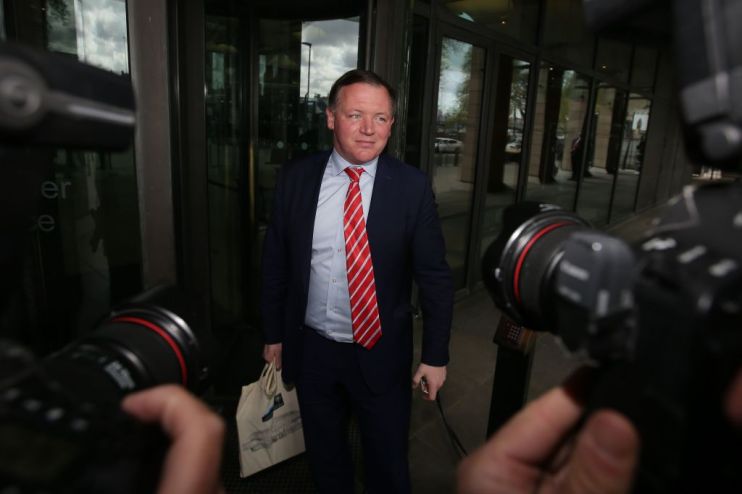Sharing fake news about coronavirus should be an offence, says top Tory MP

Sharing fake news related to the coronavirus outbreak on social media should be an offence, a top Tory MP said today.
Damian Collins, former chair of the Digital, Culture, Media and Sport (DCMS) Select Committee, called for sanctions against organisations and individuals that were “maliciously, deliberately, and at scale pushing disinformation through social media networks”.
“I think it should be an offence to do that at scale and maliciously and knowingly,” he told the BBC’s Emma Barnett Show.
“And for the social media companies themselves if that activity is reported to them and they fail to act against that content then I think that should be an offence for them to fail to act as well.”
It came as Collins launched a new online fact checking service aimed at combatting misleading information about the Covid-19 outbreak.
Infotagion allows people to submit screenshots of information they have received about the virus, which is then verified by a team of fact checkers using the latest information from trusted sources such as the World Health Organization and official government bodies.
The service was launched in partnership with Iconic Labs, a marketing firm led by three former Unilad executives.
“At a time where people are being able to volunteer to help where they can, we are delighted to be able to use our skills and contacts where they will be most useful,” said Iconic Labs chief executive John Quinlan.
“For Infotagion to have received such widespread support and backing so quickly is really encouraging and hopefully it will be able to help the authorities and the public at this challenging time.”
The Society of Editors, which represents the news industry, welcomed the initiative, but warned that calls to criminalise disinformation could restrict free speech and lead to censorship.
“It is easy to call for the spreading of misinformation on matters of health to be made criminal offences, but the devil is usually in the detail,” said executive director Ian Murray.
“And when this crisis passes will such laws then be used to police what is said on the internet in other ways? Laws produced in haste usually turn out to be blunt instruments that have all manner of unintended consequences.”
The government has ramped up its efforts to clamp down on misinformation, with specialist Whitehall units now tackling up to 70 incidents a week of false or misleading claims relating to the pandemic.
Ministers are this week expected to push social media companies to do more to stamp out misinformation posted to their platforms.